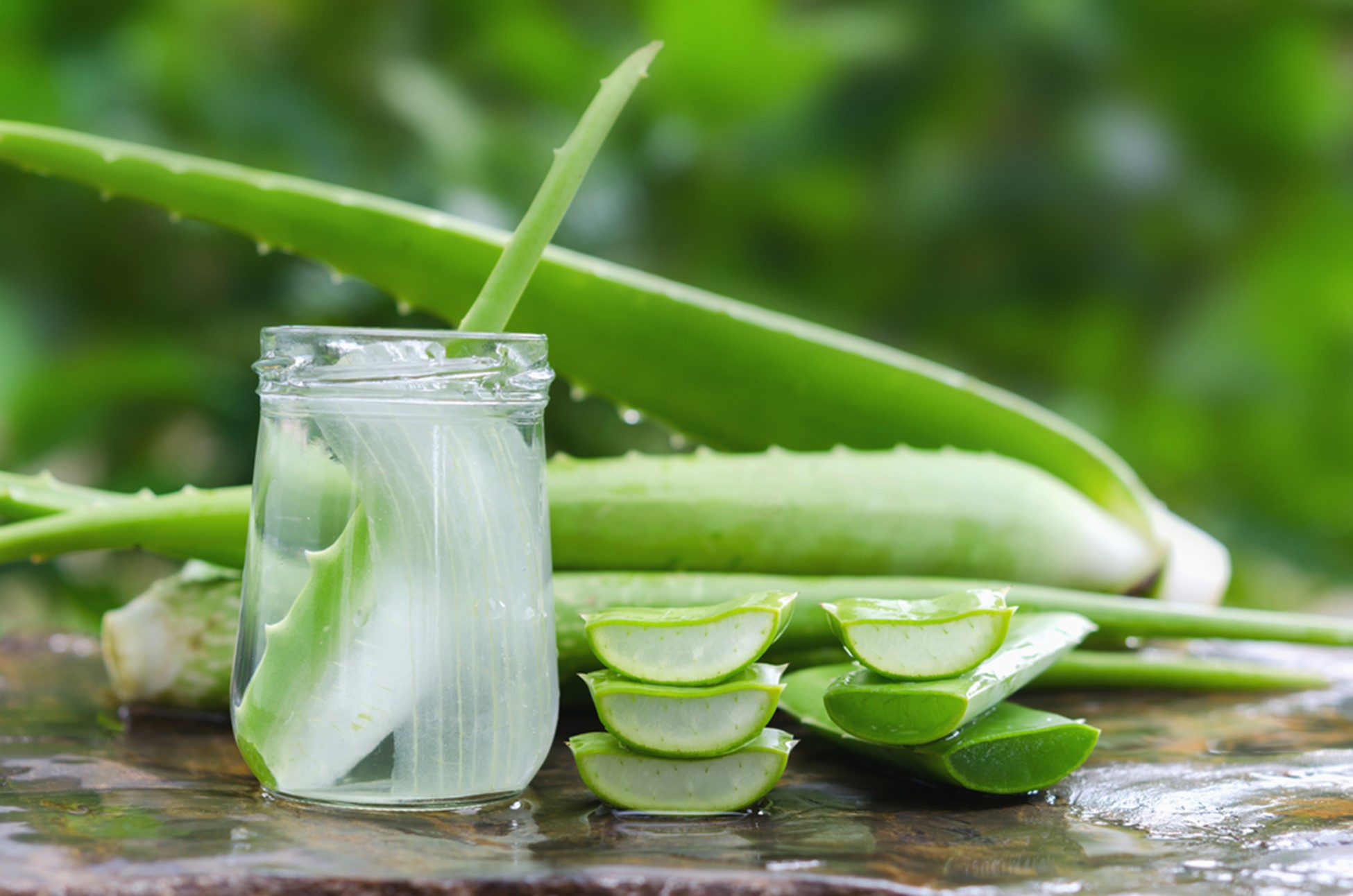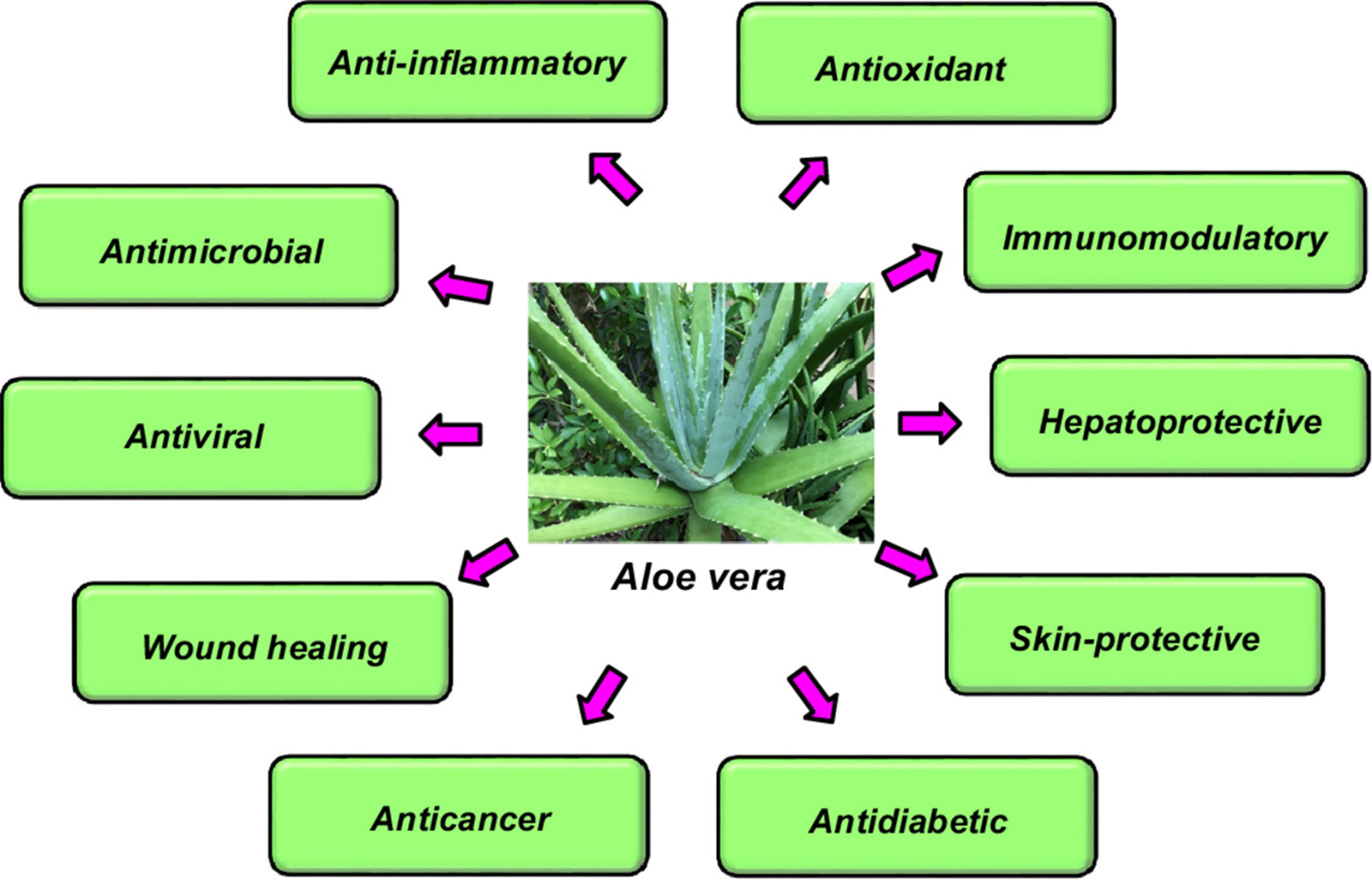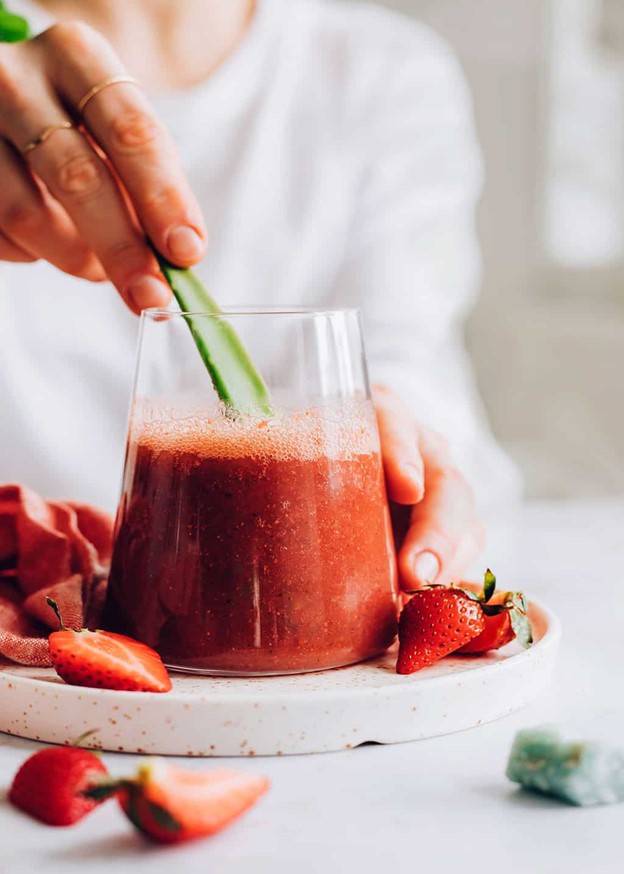A Tasty and Unique Way to Protect the Immune System
Here’s an idea: How about getting yourself an aloe vera plant? (If you’re wondering “Why is she talking about a houseplant in a cooking newsletter?” Stick with me. You’ll be glad you did.)

First of all, aloe vera is easy to grow. For instance, while if grows best in very bright light, it will good-naturedly tolerate less light. And when it comes to watering, it’s able to survive WEEKS without being watered.
Secondly, it’s packed with health benefits. Normally, when we hear of aloe, we think of the sticky gel we slather on sunburned skin, right? Yet while it’s fantastic for that, aloe vera provides so much more:

VITAMINS. It contains the B-complex, including B1, B2, B3, Choline, Folic Acid, Vitamin C and Beta Carotene.
MINERALS. Significant amounts are found in the outer rind or whole leaf. It boasts calcium, magnesium, potassium, chloride, zinc, manganese, copper, chromium, sulfur, aluminum, and natural sodium.
FATTY ACIDS and TRIGLYCERIDES. Aloe contains linoleic acid, campesterol, B-sisterol, and lupeol. These carry the fat-soluble vitamins, supply the fatty acids essential for growth and general health of all body tissue—especially the skin. And they create anti-inflammatory support and help supply energy.

ENZYMES. Aloe vera contains alkaline phosphatase, sgotransaminase, sgptransaminase, lactic dehydrogenase, amylase, lipase, oxidase, peroxidase, catalase, bradykininase, gamma transaminase, and carboxypeptidase. Aloe facilitates chemical reactions of all vitamins, minerals, and hormones (because of this abundance of enzymes).
AMINO ACIDS. It’s filled with aspartic acid, asparagine, serine, glutamine, hydroproline, proline, glycine, alanine, cystine, tyrosine, glutamic acid (found in the whole leaf). And it also contains trace amounts of lysine, histidine, arginine, threonine, valine, methionine, isoledcine, leucine, and phenylalanine..
SYNERGISTIC ELEMENTS. Cinnamonic acid, traumatic acid, salicylic acid, saponins, sterols, lignins, gibberellins, and anthraquinones are all found in aloe.
CARBOHYDRATES. Aloe contains polysaccharides—natural sugar compounds that assist in digestion, assimilation of nutrients, and immune function.

And it’s this IMMUNE FUNCTION HELP that leads me to the third reason to keep an aloe vera plant. News reports tell us we’re looking at a tough season of flu and other viruses coming our way. So it makes good sense to do everything we can to support and protect our immune system.
Consuming 1 tablespoon of aloe gel a day is said to help with everything from reducing constipation and healing inflammation of the digestive tract to soothing canker sores and preventing wrinkles. That’s because of the above-mentioned anti-inflammatory and antioxidant compounds. It also improves blood circulation, and all of these qualities speed up wound healing and help prevent cell death inside the body.

Aloe also has antimicrobial properties that protect the body from certain types of harmful bacteria and fungi, so it keeps bad bacteria at bay and allows good bacteria to flourish.
All this said, I’ve been looking for ways to include it in the diet. Smoothies are a perfect place to start. Pieces of whole leaf combine well in them. It’s true you could just use pure aloe juice found in whole foods stores, but because many of the above-mentioned benefits are actually only in the complete leaf, it would be best to have a plant on hand.
For those interested in this idea, I’ll close with a delicious recipe that could easily become a favorite family drink. It is a naturally sweet mixture, using organic apple juice and strawberries to help hide any unpleasant taste.

1 1/2 cups organic apple juice
2 cups chopped greens of choice parsley, kale, spinach, or chard
2 1/2 cups frozen or fresh strawberries
1 medium apple cored and cut into pieces
1 small spear aloe vera
Directions:
Add Recipe to Cook'n

First of all, aloe vera is easy to grow. For instance, while if grows best in very bright light, it will good-naturedly tolerate less light. And when it comes to watering, it’s able to survive WEEKS without being watered.
Secondly, it’s packed with health benefits. Normally, when we hear of aloe, we think of the sticky gel we slather on sunburned skin, right? Yet while it’s fantastic for that, aloe vera provides so much more:

VITAMINS. It contains the B-complex, including B1, B2, B3, Choline, Folic Acid, Vitamin C and Beta Carotene.
MINERALS. Significant amounts are found in the outer rind or whole leaf. It boasts calcium, magnesium, potassium, chloride, zinc, manganese, copper, chromium, sulfur, aluminum, and natural sodium.
FATTY ACIDS and TRIGLYCERIDES. Aloe contains linoleic acid, campesterol, B-sisterol, and lupeol. These carry the fat-soluble vitamins, supply the fatty acids essential for growth and general health of all body tissue—especially the skin. And they create anti-inflammatory support and help supply energy.

ENZYMES. Aloe vera contains alkaline phosphatase, sgotransaminase, sgptransaminase, lactic dehydrogenase, amylase, lipase, oxidase, peroxidase, catalase, bradykininase, gamma transaminase, and carboxypeptidase. Aloe facilitates chemical reactions of all vitamins, minerals, and hormones (because of this abundance of enzymes).
AMINO ACIDS. It’s filled with aspartic acid, asparagine, serine, glutamine, hydroproline, proline, glycine, alanine, cystine, tyrosine, glutamic acid (found in the whole leaf). And it also contains trace amounts of lysine, histidine, arginine, threonine, valine, methionine, isoledcine, leucine, and phenylalanine..
SYNERGISTIC ELEMENTS. Cinnamonic acid, traumatic acid, salicylic acid, saponins, sterols, lignins, gibberellins, and anthraquinones are all found in aloe.
CARBOHYDRATES. Aloe contains polysaccharides—natural sugar compounds that assist in digestion, assimilation of nutrients, and immune function.

And it’s this IMMUNE FUNCTION HELP that leads me to the third reason to keep an aloe vera plant. News reports tell us we’re looking at a tough season of flu and other viruses coming our way. So it makes good sense to do everything we can to support and protect our immune system.
Consuming 1 tablespoon of aloe gel a day is said to help with everything from reducing constipation and healing inflammation of the digestive tract to soothing canker sores and preventing wrinkles. That’s because of the above-mentioned anti-inflammatory and antioxidant compounds. It also improves blood circulation, and all of these qualities speed up wound healing and help prevent cell death inside the body.

Aloe also has antimicrobial properties that protect the body from certain types of harmful bacteria and fungi, so it keeps bad bacteria at bay and allows good bacteria to flourish.
All this said, I’ve been looking for ways to include it in the diet. Smoothies are a perfect place to start. Pieces of whole leaf combine well in them. It’s true you could just use pure aloe juice found in whole foods stores, but because many of the above-mentioned benefits are actually only in the complete leaf, it would be best to have a plant on hand.
For those interested in this idea, I’ll close with a delicious recipe that could easily become a favorite family drink. It is a naturally sweet mixture, using organic apple juice and strawberries to help hide any unpleasant taste.

Immunity-Protecting Aloe Smoothie
Ingredients:
1 1/2 cups organic apple juice
2 cups chopped greens of choice parsley, kale, spinach, or chard
2 1/2 cups frozen or fresh strawberries
1 medium apple cored and cut into pieces
1 small spear aloe vera
Directions:
Puree apple juice, greens, berries, apple, and aloe spear together. Puree until smooth. Serve immediately.
Recipe formatted with the Cook'n Recipe Software from DVO Enterprises.
 Alice Osborne
Alice Osborne
Weekly Newsletter Contributor since 2006
Email the author! alice@dvo.com
